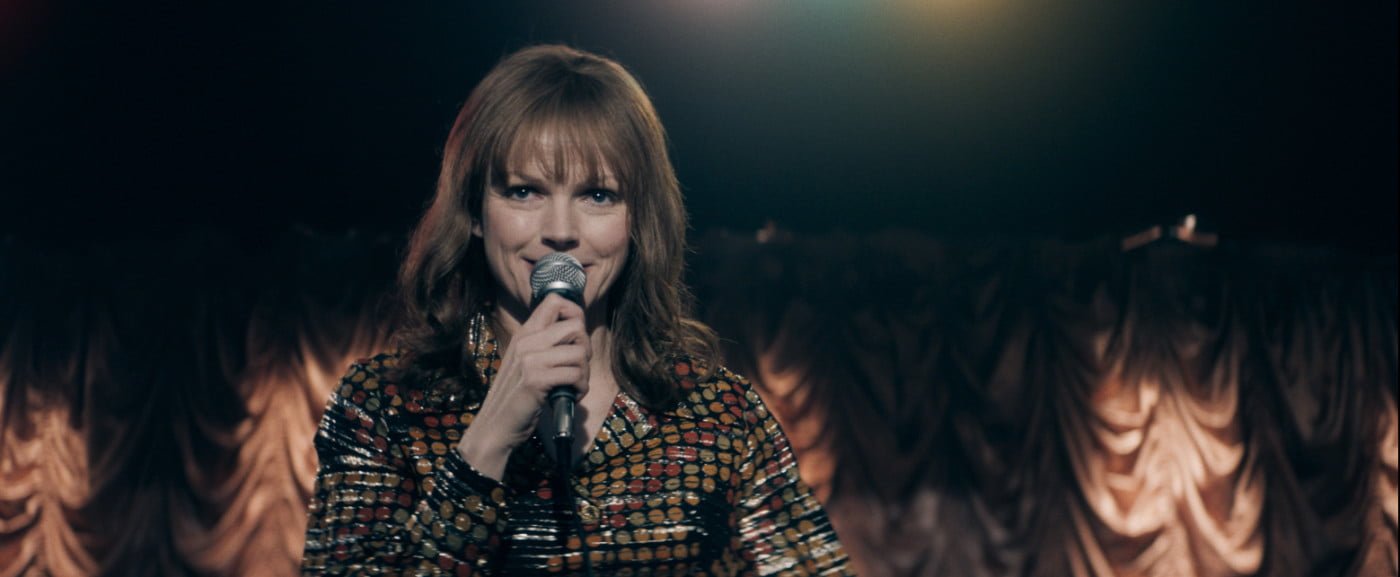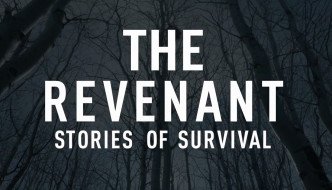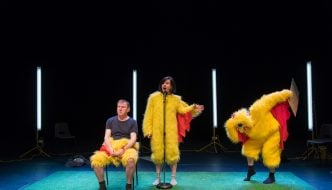
Funny Cow (2017), Adrian Shergold. Pic courtesy of HOME.
Through a truly unique narrative style, Funny Cow (2017; dir. Adrian Shergold), tells the story of an independent female ‘Funny Cow’, living in Sheffield in the 1970s. Loosely based on the life of female comic Marti Caine, Funny Cow explores the trials and tribulations a working-class woman has if to follow her dreams; dreams that might not align themselves with the desires of the white male social patriarchy surrounding them.
Maxine Peake fits into the role with seamless familiarity. Peake has excelled in depicting raw, gritty characterisations since the release of the TV series Shameless, and Funny Cow follows this patterning with sincerity. Whilst this doesn’t pigeonhole her, given that Peake too is currently touring a Samuel Beckett play Happy Days at the Royal Exchange, it does mean that Peake’s suitability enhances Funny Cow’s credibility.
I would liken it to a new age Billy Elliot (2000) that discusses women’s issues through the perspective of a hilarious and seemingly brash female protagonist as the film takes us through three stages of her life: childhood, adolescence, and adulthood. The interweaving of the different ‘Funny Cows’ was done with stylistic integrity. A moment which stuck out to me was when adult ‘Funny Cow’ (Maxime Peake), met her child-self (Macey Shackleton) in the street, who asked: “Are you famous?”. ‘Funny Cow’ is a character who, as an innocent but never naïve child had a spirit and wit about her which was endearing and enjoyable to watch. However, it was unfortunately that same audacious spirit which encouraged her misfortune in adulthood.
While ‘Funny Cow’ in her sarcasm and blithe nature gives a raw humour to the film, her life is more than a series of punch-lines. The encouraged moments of laughter are not without the subconscious awareness that ‘Funny Cow’s’ trajectory includes her being a victim of bullying, her mother’s alcoholism, domestic abuse, and family rejection, all culminating in a continuous and unreconciled state of loneliness. The tragedy of her situation leaves her with a somewhat existentialist attitude that, by consequence, her comedy revels in. This is an attitude which, while helping the film attain its honesty, also made it something I personally wouldn’t choose to see again.
In alignment with this point, the film does have some difficult moments which can make a more sensitive audience member uncomfortable. The scenes showing domestic abuse are explicit, and the build up to one character’s suicide is painfully inevitable. I would argue by having themes such as these forced in front of us, projected onto a screen twenty-five feet high, the film is right to expose such, to much dismay, familiar issues. These are issues which were embarrassingly common in the 70s and 80s, yet, to our mortification, are still snubbed today.
What I would say, however, is that in an age where culture is becoming more and more censored, it was refreshing to see comedy in its unsanitised form. This is not to say that I felt comfortable with jokes about ‘puffs’ and ‘pakis’, however, but the overall blunt tone was still refreshing to finally see again.
Funny Cow is not for the faint hearted. Yet, it most definitely exhibits that women undoubtedly can be funny.
The film is currently being shown at HOME, Manchester.
Filed under: Film, TV & Tech
Tagged with: comedy, Comedy drama, drama, film, Funny Cow, HOME, manchester, Maxine Peake, Sheffield, True Story



Comments